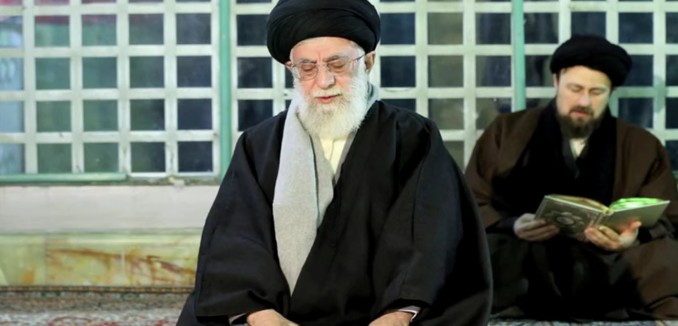In response to Iranian Supreme Leader Ayatollah Ali Khamenei’s recent speech opposing international inspections of military sites or revealing Iran’s past nuclear work, President Barack Obama and the United States “must be ready” to “walk away rather than accept a bad deal,” the editors of The Washington Post argued in an editorial published Thursday.
It’s possible that the ayatollah’s speech was a bluff intended to improve Iran’s bargaining position. A more disturbing possibility is that Iran’s ruler is setting the precedent for disregarding a deal sometime after it is concluded and after the regime pockets the tens of billions of dollars in immediate financial relief it could receive.
Whatever the case, the Obama administration must resist the temptation to respond with eleventh-hour concessions. On the contrary, the compromises already struck in the preliminary accord make it essential that the United States insist on terms for inspections and timed sanctions relief that cross the Khamenei lines.
In its essence, the agreement would place an enormous bet that Iran will moderate its ambitions and lose its taste for nuclear weapons over the next decade. In exchange for restraining its enrichment and other nuclear work for 10 to 15 years, Iran would gain the lifting of almost all international sanctions, providing it with a revenue stream it could use to escalate the wars it is fighting or sponsoring around the Middle East. When the accord lapsed, Iran would immediately become a nuclear threshold state, with a breakout time “almost down to zero,” as President Obama put it.
Due to the riskiness of the emerging deal, international inspectors must have unfettered and quick access to all suspected nuclear sites, including military installations, the Post argued. The piece also said that sanctions relief should be conditioned on the completion of the International Atomic Energy Agency’s investigation into Iran’s past nuclear research, which is necessary as “a baseline for judging future Iranian compliance.”
Although the editors of The Washington Post endorsed Obama for president twice and supported the Joint Plan of Action when it was signed in November 2013, they have been looking much more skeptically in recent months at the administration’s nuclear diplomacy with Iran. In October, the Post’s editors urged the administration to “hold the line on Iran,” and observed that in contrast to the administration’s efforts to accommodate Iran, “[i]f Iran has made similar efforts to bridge the gaps between the two sides, there is no report of them.”
Other editorials in recent months have noted that the emerging deal would reward Iran for its past violations of the nuclear nonproliferation treaty, and that the administration had retreated from a number of its earlier negotiating positions. An editorial last month proclaimed that the trial of Washington Post reporter Jason Rezaian, who was arrested by Iran nearly a year ago, was an attempt to bully the United States into accepting a weak nuclear deal. Another editorial asked how a government that couldn’t or wouldn’t protect Rezaian could possibly be trusted to keep its word if it agreed to a nuclear deal with the West.
[Photo: Wochit World / YouTube ]




